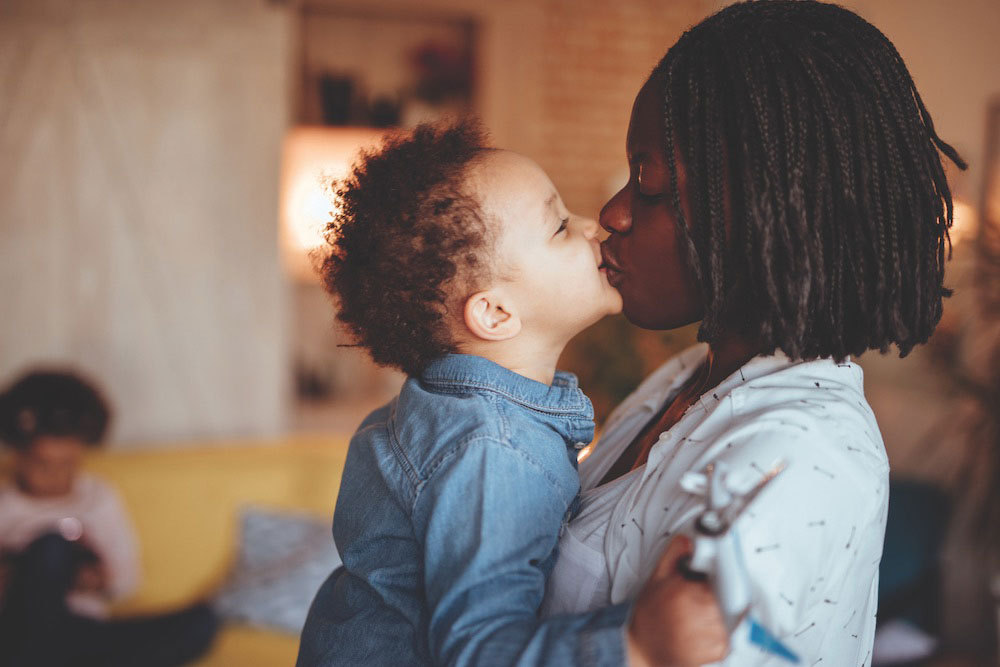Parenting Styles: Becoming the Parent You Want to Be

Between all of the classic and modern caregiving approaches, discovering the parenting style that works for you can be a challenge.
Growing up, most of us assumed that our parents just sort of knew how to take care of us—like it was an innate skill that they happened to be experts at. After becoming parents ourselves, we quickly realized that the ways our caregivers raised us were likely the result of a combination of advice from parenting books, their personal childhood experiences, and just winging it all day, every day. This realization, for me, was terrifying because it meant that there was no secret holy grail of parenting advice that I could seek out to give me step-by-step directions on how to raise my daughters the “right” way.
Caregivers have been bringing up children for centuries, so you’d think that someone, somewhere, would be able to tell us exactly how to do things, right? As civilization evolves, so does research on child development, and what we know about kids today is more in-depth than what generations before us knew. The truth is, you are the expert on your family, and if you want to learn how to be a better parent, you need to understand the basics, gain insight from the past, and decide what works best for you and your young children.
What Are the Four Parenting Styles?
Many factors can contribute to how providers raise their children, such as their culture or moral or religious beliefs. You’ve probably heard terms for modern parenting styles, like tiger parents, helicopter parents, snowplow parents, free-range parents, and gentle parents, but even these “styles” are rooted in the core four parenting approaches that researchers determined over the years: authoritarian, authoritative, permissive, and uninvolved.
Authoritarian
This is Essentially the “do as I say” approach. The parent makes the rules and expects the child to obey, no questions asked. There is little, if any, back-and-forth communication or negotiation when it comes to expectations and standards, and if a child throws a tantrum, misbehaves, or missteps, they can expect some form of punishment. While kids who are raised this way may be better behaved than some of their peers, research has found that their well-being may suffer and they might also have difficulty making their own decisions as adults, have uncontrolled aggression and/or anger, lower self-esteem, and may be more likely to reel against authority figures.
Authoritative
Our generation’s emphasis on gentle parenting is essentially authoritative parenting. With this style, parents provide their children with clear guidelines and expectations and rely on natural consequences—which they discuss with their child—rather than traditional punishments. Unlike authoritarian, authoritative parenting is all about communication; parents are encouraged to let their child have input in goals and expectations and to have age-appropriate discussions with their child to explain why specific rules are in place. This parenting style has been found to result in some of the best outcomes for children’s emotional and mental health, leading them to become confident, emotionally aware, responsible, high achievers, and have higher self-esteem.
Permissive
These parents are warm and nurturing like authoritative parents but are the complete opposite of authoritarian parents because they set low expectations and implement very few rules. Typically, there is open communication between permissive caregivers and children, and discipline and punishment are rare. Ultimately, children raised this way typically have high self-esteem and strong social skills, but all of the freedom they were allotted as children can make moderation and self-regulation difficult as they grow up. These children may become impulsive, demanding, and selfish.
Uninvolved
Those parents who provide their children with their basic needs, keeping them generally safe, fed, warm, and clean, but otherwise are detached from their child’s life fall into the uninvolved parenting style. There is very little communication between the parent and child, the parent isn’t very affectionate or nurturing, and they have very low expectations of their children. As they grow up, children with uninvolved parents become very self-sufficient and are generally considered to be resilient. However, they also tend to struggle with social relationships, controlling their emotions, and creating effective coping strategies.
How Can I Be A Better Parent to My Child?
Many of today’s parenting styles combine some of these four core approaches, so if you don’t feel like you fall into one category, that’s perfectly normal. But understanding these different styles of parenting—and how they can affect a child long-term—can hopefully help you determine where you’d like to fall on the spectrum.
From there, it’s about putting your specific style into practice. If you’re an expecting parent, before your baby is born, sit down with your partner and discuss words that you’d like to be able to use to describe your child when he’s an adult. Courageous. Creative. Kind. Then, encourage and foster these qualities from the get-go. If you want your kid to be fearless, you can’t always swoop in to save them when they’re in a pickle. If you want your child to be kind, demonstrate what that looks like.
After your baby arrives, you’ll quickly learn how often you’ll need to adapt—whether it’s the type of bottle you use, letting go of the dream of only serving homemade organic puree, or even changing up your parenting style based on your individual child. The only constant in parenthood is that it’s constantly changing. Once you’ve figured out one thing, something else is waiting just around the corner to make you question your ability. Roll with the punches and evolve as needed.
Also, don’t be afraid to stray from the pack and try to avoid parenting “on trend.” If an influencer you admire is all about free-range parenting, but the thought of letting your little climber roam free on the playground terrifies you, then trust your gut. In our world of information overload, it can be hard to decipher what’s right and what’s wrong (spoiler alert: there’s rarely a clear line). Just worry about what’s right for you, even if that opinion differs from the majority.
It’s also important to remember to give yourself some grace. You’re human, and you’re never going to do things perfectly. A good parent might not be patient all the time. They might yell. They might hire a babysitter once a week just so they can nap. There are a million different ways to be a good parent. You don’t have to be perfect; you just have to be you.
Finally, and most importantly, as long as your parenting style is rooted in love, your kiddo(s) will be just fine. The one thing all “good” parents have in common is that they love their kids unconditionally.








